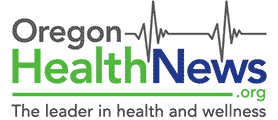The average consumer may not know that each year since 2004, the Office of the Surgeon General, U.S. Department of Health and Human Services, has declared Thanksgiving to be National Family History Day.

According to the Surgeon General, Thanksgiving Day, and other times when families gather, is a great opportunity to talk about health problems and conditions that are present in their family. Discussions can initiate learning about one’s family health history and keeping a record, noting this is the first step in helping to ensure a longer, healthier future together.
Why is Family Health History Important? Everyone talks about traits and characteristics that “run in” their family, such as eye and hair color. Along with these physical traits, which are passed down from parent to child, some common diseases can also be inherited. These include: Diabetes, heart disease, stroke some cancers, arthritis and osteoporosis.
Knowing which conditions your parents and grandparents developed can provide an opportunity to learn about the disease. More importantly, family members can find out what they can do to prevent developing the same condition. It is recommended to ask questions about your close relatives’ health including:
- Birth defects and childhood health problems
- Any common adult diseases (e.g., diabetes, heart disease, stroke, cancer, arthritis)
- Age at death
- Cause of death
According to the site you should include the health of your closest relatives, related to you by blood, which medical professionals claim influences your health the most. Therefore, include your: Parents, children, grandparents, brothers and sisters, aunts, and uncles
Family gatherings (reunions, Thanksgiving and other holidays) may offer opportunities to collect family health histories. Many family members will find this useful and can share it with their primary care provider who will make health care recommendations. Below are some links and forms to help make these questions and information easier to track.
These links offer educational opportunities for health care providers and the public in raising awareness of the importance and value of knowing one’s family health history.
